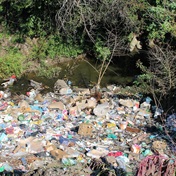
After much anticipation and anxiety over the Budget Review, it was a bit of a damp squib, and that’s because a lot more was expected from the Finance Minister, who had tweeted ferociously about the need to cut spending.
The expectation was that we would "do the unthinkable and shake the Baobab tree" or "grab the animal by the scruff of its neck", to quote his tweets.
I thought that meant reducing public sector workers, cutting expenditure and finding a solution for the many limping state-owned enterprises. These are all solutions to shrinking the budget deficit, especially in the absence of growing revenue collection.
Instead, the Budget Review shows an increase in the deficit to 6.8% of GDP this year, from 6.5% presented in the medium-term budget policy statement (MTBPS). Revenue forecasts were slightly revised down from the MTBPS; however, this could be offset by gains from the carbon tax.
Revenue and expenditure as a share of GDP are at historical highs, largely due to slow economic growth, but also due to the increased support of SOEs by the government - a decision that doesn’t make economic sense.
Treasury’s solution to close the widening gap between revenue and expenditure is to cut expenditure, which is sensible, given that very little can be done on the revenue side.
However, controversially, Treasury proposed to reduce expenditure by reducing growth in the public service wage bill. Over the years, government made reductions in goods and services and capital budgets, and even though current transfers have increased, social support, the support of higher education and the UIF cannot be reduced. Hence the proposal to reduce the growth in the biggest item of government spending, the wage bill.
Ambush
Treasury hopes to raise about R160 billion without sealing the deal with labour. In fact, labour only found out about the details of the wage bill proposal on the eve of the Budget Speech during a meeting with government at the Public Sector Bargaining Council. Not only did labour feel ambushed, but government broke their trust by reneging on an existing agreement, since the three-year wage agreement only expires in 2021.
It is perfectly reasonable to be doubtful that labour will capitulate. Indeed, the public sector wage bill has grown by roughly 40% in real terms over the past 20 years and by an average of about 8% in the past three years compared to a flat to declining growth in salaries in the private sector. Additionally, public sector productivity is incongruent with the increase in the wage bill. Something has to give, but labour has to be part of finding the solution.
Slowdown
South Africans have since received confirmation that the economy is in recession after a -0.8 % and -1.4 % contraction in Q319 and Q419, respectively. The economy grew by a paltry 0.2 % in 2019. In the past six years, GDP growth has not increased above 2%, and forecasts show that the economy is unlikely to grow above 2% in the next three years. A slowdown in economic activity over the course of a normal business cycle is called an economic depression.
In the last quarter of 2019, only the finance, mining and personal services sectors, which account for about 35% of the economy, registered positive growth. The reason for this slow growth is mainly due to load shedding, which resulted in many manufacturers and mining companies closing earlier than expected.
The other reason is the slowdown in spending by consumers. On the expenditure-side of GDP, gross fixed capital formation (GFCF) registered a decline of 10%, despite efforts by President Ramaphosa to boost investment. GFCF contracted 14 out of 20 quarters since 2015.
Gloomy forecast
Slow economic growth implies that the debt metrics are likely to worsen. S&P warned us in November 2019 when they changed the ratings outlook to negative from stable, that they will lower their rating further if there is fiscal deterioration, higher spending, rising interest rate costs and increased contingent liabilities.
Slowing growth is of concern, because it will have a negative effect on revenue collection. South Africa’s per capita GDP is below its emerging market peers and has been shrinking since 2014, largely due to the depreciation of the rand.
In the same month, Moody’s also changed their ratings outlook to negative from stable. According to Moody’s, the negative outlook reflects the material risk that the government will not succeed in arresting the deterioration of its finances through a revival in economic growth and fiscal consolidation measures.
Factors that could lead to a downgrade include the continuation of poor economic performance and fiscal deterioration.
A downgrade would reflect growing clarity that the government will not be able to further develop and implement its fiscal and economic strategy to halt and ultimately reverse the debt trajectory.
Moody's blues
Importantly, Moody’s stated that the 2020 budget, in particular, will be a key indicator of whether or not the government is committed to the fiscal consolidation recommended in the MTBPS.
Not only are the debt metrics in the 2020 budget worse than those contained in the MTBPS, of concern is the increase in debt-to-GDP, which is forecast to increase to above 80% in FY2027/28.
It is still unclear why that ratio increases in perpetuity, without any indication of it declining in future as expenditure is crimped and revenues increase. The increase in debt would also be a bit more palatable if Treasury illustrated how the ratio will decrease in the outer years and what measures would have to be taken.
The perennial problem: SOEs
South Africa’s fiscal stance remains opaque because there is a fiscal credibility problem. Instead of fiscal consolidation, spending has increased.
The problem lies with the SOEs. Too much of the fiscus is dedicated to saving the many ailing SOEs and therefore cutting growth in the wage bill will be challenging. Government employees interpret this reduction in the growth of the wage bill as a penalisation for the corruption that befell SOEs in the past decade.
The huge risk to the 2020 Budget is if labour stays put. Moody’s estimate that the fiscal deficit will reach 7.5% of GDP this year if government fails to contain the rise in the wage bill.
A ratings downgrade is imminent in 2020, because there was a failure to hold the animal by the scruff of its neck.




 Publications
Publications
 Partners
Partners











